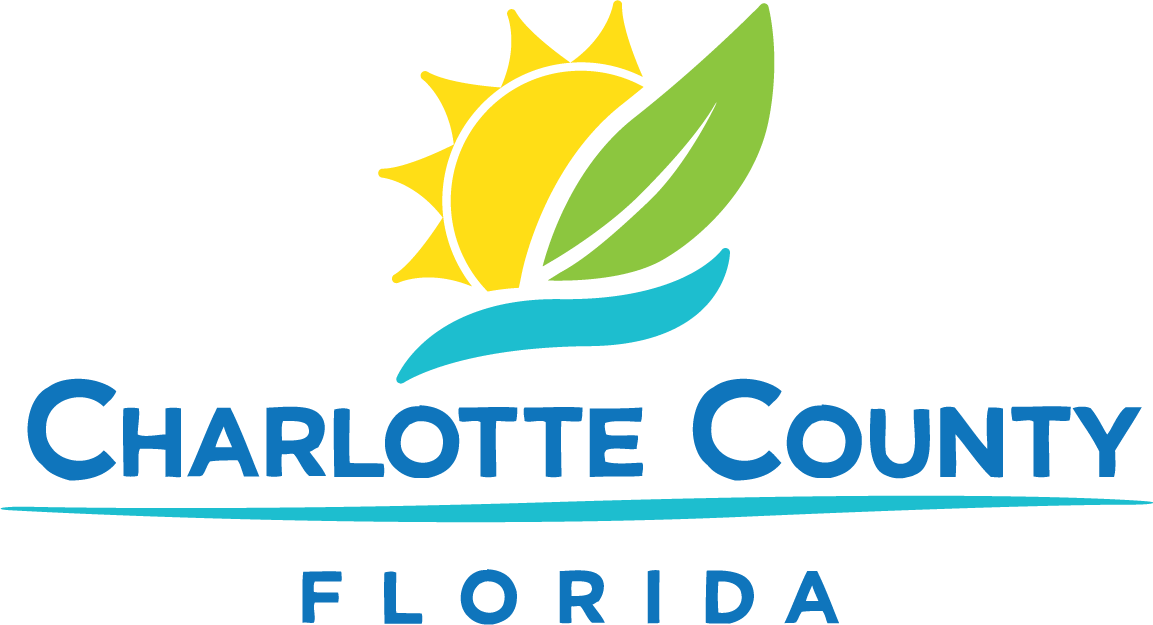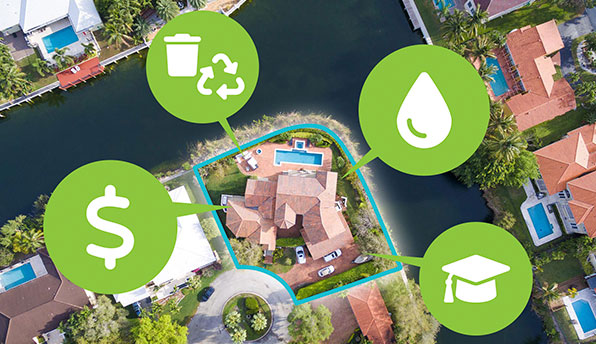As citizens in Florida, we face a whole host of issues that directly affect everyday life including everything from where we live and work, to how we get around, how we protect our environment, where we get our drinking water from, and where our children go to school. These issues and many more like them are highly complex and are very often interlinked.
Because these issues are so complex and have a direct impact on our quality of life, the State of Florida mandates that all cities and counties create and maintain a Comprehensive Plan to address them. Comprehensive Plans guide the decision-making processes for all local governments and strive to create better communities and a higher standard of living for citizens.
- Square miles: 693.7 sq. mi. and approximately 129 sq. mi. of water area
- Population: 202,661 (2022 U.S. Census estimate)
- Number of households: 89,309 households
- Homes built per year: Approximately 3,387 single-family homes built per year
View the Charlotte Interactive Growth Model - 2024 Update Results and Findings
Why can’t the county restrict new development?
New developments in Charlotte County occur where existing property owners have property rights that enable them to utilize their land for their benefit. These property rights are established by the Charlotte County Comprehensive Plan, Land Development Regulations (LDRs), and local ordinances, as empowered by the State government. In Florida, every local government must adopt a comprehensive plan outlining future land use, establishing residential density and non-residential development intensity, such as commercial and industrial uses, and setting standards for all properties within the jurisdiction through the Future Land Use Map (FLUM). The FLUM consists of land use categories that establish development limits for each property. The State of Florida mandates that local governments update their comprehensive plans at least every seven years.
The comprehensive plan serves as a roadmap for creating Subdivision, Street, and Land Development Regulations (Zoning) that provide detailed rights and restrictions for each property. Charlotte County's current Land Development Regulations (LDRs) were adopted in 2014.
The County’s Comprehensive Plan and LDRs promote urban development and redevelopment along major corridors such as U.S. 41 and S.R. 776, and within Community Redevelopment Areas. These plans also focus on preserving important natural resources, enhancing resilience to natural disasters, and respecting the area's beautiful natural environment.
Where is the growth going to be?
Urban and suburban development of vacant properties, as well as the redevelopment of properties, occurs within the Urban Service Area and along major roadways in the county, including U.S. 41, S.R. 776, U.S. 17, C.R. 775, C.R. 771, and Burnt Store Road.
What can the county do to limit growth?
Fortunately for property owners, Florida has robust property rights laws that protect individual owners from arbitrary or unjust actions by local governments. In 2021, the county adopted the Property Rights element as part of its Comprehensive Plan. Due to these state-level protections, it is extremely difficult to reduce a property’s maximum development potential as established by the County’s Comprehensive Plan and LDRs or to deny development of individual properties that comply with these policies and regulations. If the county denies a development application that is consistent with the Comprehensive Plan and LDRs, the property owner can file a lawsuit demanding reconsideration of the proposal and/or monetary compensation. These state-level protections exceed those provided by the U.S. Constitution under the Bill of Rights.
For example, under the Bert J. Harris Jr. Private Property Rights Protection Act of 1995, potential liability is created if a governmental entity inordinately burdens an existing use of real property or a vested right to a specific use of real property. This Act can be found in Chapter 70 of the Florida Statutes.
How can the county control traffic?
Traffic or growth in traffic is not something that can be controlled by any single local government. It is best addressed at the regional level, as vehicular traffic generation is based on broader land use patterns. Within a region, different areas may be designated for luxury housing, affordable workforce housing, retail spaces, or vital services such as hospitals and government buildings. The mismatch between where people live and where they work or recreate contributes to vehicular traffic. Public roads are open to all users, regardless of their origin or destination. Given this reality, local governments should focus on proactive traffic management to ensure the transportation system operates efficiently.
Traffic management is particularly important in our county. Many of the most heavily traveled roadways within the county, such as U.S. 41 (Tamiami Trail), U.S. 17 (Duncan Road), and S.R. 776 (McCall Road), are owned and maintained by the State of Florida. Roads like Burnt Store Road, Jones Loop Road, Taylor Road, and part of Airport Road are maintained by the county. The county collaborates with the City of Punta Gorda, the Florida Department of Transportation (FDOT), and the Charlotte County-Punta Gorda Metropolitan Planning Organization (MPO). The MPO oversees long-term transportation planning for all of Charlotte County, including the City of Punta Gorda, under state and federal transportation guidelines.
What is the difference between the Comprehensive Plan and the Zoning Code?
Every city and county in Florida are required to have a comprehensive plan, which provides the policy foundation for local planning and land use decisions on various aspects such as capital improvements, natural resources, intergovernmental coordination, recreation, open space, future land use, housing, transportation, coastal management, and public facilities. It guides local government actions through goals, objectives, and policies (GOPs), establishing the maximum level of development allowed on each parcel of land.
There have been three versions of the County’s Comprehensive Plan. The first, known as the 1988 Comprehensive Plan, was adopted in the 1980s. The 1997-2010 Comprehensive Plan was adopted on October 22, 1990. The current plan, called the Charlotte 2050 Comprehensive Plan, was originally adopted on July 20, 2010, and became effective on June 15, 2011. This plan was updated and adopted by the Board of County Commissioners on October 25, 2022.
The Zoning Code, locally known as the Land Development Regulations (LDRs), implements the Comprehensive Plan. The LDRs provide a comprehensive and detailed regulatory framework for all development and land use, covering aspects from building setbacks to fence heights and parking space dimensions to business signage sizes. These regulations guide architects and engineers in developing plans that shape the places where we live, work, shop, and visit every day.
The relationship between the Comprehensive Plan and the Zoning Code is comparable to that between the Florida Constitution and Florida Statutes. The Comprehensive Plan provides the overarching vision through its goals, objectives, and policies, while the Land Development Regulations offer the detailed instructions for designing and building the envisioned community.
Why can’t proposed projects be discussed with citizens following the submittal of a formal application?
Formal applications for land use matters, such as rezoning, planned development rezoning, and special exceptions, are handled through quasi-judicial public hearing processes under Florida law. In these processes, the Board of County Commissioners, the Planning and Zoning Board, and the Board of Zoning Appeal act as judges. Like courtroom judicial decisions, quasi-judicial decisions must be based on factual information presented in the public record during the hearing.
The due process rights of all participants—including applicants, the county, interested third parties, and the general public—are protected. These rights include proper notice (advertisement and posting of hearing date/time), the opportunity to be heard (public comment), and the right to be informed of all facts (presentations by county staff and the applicant) on which the decision-makers rely.
To maintain impartiality, Board Members and Planning Commission members are advised by the County Attorney’s Office not to respond to letters, phone calls, emails, or meeting requests regarding a quasi-judicial public hearing outside the public hearing itself. Citizens are encouraged to attend and speak at public meetings where quasi-judicial hearings take place.
What does quasi-judicial mean? How does it differ from everything else you do?
The Board primarily functions as a legislative body responsible for the county's budget and key policies, including hiring a County Administrator and County Attorney. The County Administrator and County Attorney manage daily operations based on the budget and policy directives provided by the Board. In the legislative process, public opinion, individual Board members' opinions, and facts and professional opinions presented by County staff all influence the decision-making process.
In contrast, for land use matters such as rezoning and planned development rezoning, the Board acts as judges in a quasi-judicial process mandated by Florida law. In these proceedings, the Board must apply the law as outlined in Florida Statutes, the County’s Comprehensive Plan, and the County’s Land Development Regulations to the evidence presented through applications, county staff reports, and other evidence and testimony at the public hearing.
The adoption of the Land Development Regulations and Comprehensive Plans themselves is a legislative process. However, decisions in the quasi-judicial process must be supported by competent substantial evidence. This standard excludes personal opinions of the public or Board members. No matter how strongly felt or deeply held, opinions cannot influence quasi-judicial decisions; only evidence directly related to the matter at hand and based on applicable laws may be considered.
Why can’t the county insist that developers expand roads if new developments cause more traffic?
In 2010, the State Legislature removed transportation concurrency requirements from Florida law. However, Florida law still permits the collection of impact fees based on a rational nexus between planned improvements by local governments and the relative impact of development based on its size. The county collects these impact fees for transportation improvements, which are paid when a development is approved for occupancy. The purpose of these fees is to help fund projects that address deficiencies in the transportation system.
Under county regulations, applicants for larger projects must also provide site-specific traffic studies to identify any potential deficiencies resulting from the development. It is then up to the county to determine how and when to fund projects that address these deficiencies in the transportation network.
Why can’t you refuse new building plans based on limited school capacity?
School concurrency is no longer mandated by Florida law. However, the impact of development on schools is reviewed by the Charlotte County School Board staff in coordination with local governments through an interlocal agreement. This agreement ensures that School Board staff are actively involved in the development review process.
What criteria can be used to deny a new project?
There are two primary justifications for denying a development application:
- Inconsistency with the Comprehensive Plan, supported by competent substantial evidence.
- Inconsistency with the Land Development Regulations (Zoning Code), supported by competent substantial evidence.
The County’s Comprehensive Plan and Land Development Regulations are extensive policy documents, each containing numerous technical and specific provisions and requirements. These documents aim to enable productive land use, protect property values, preserve historic resources, conserve the natural environment, and ensure efficient and effective delivery of public services.
Do we have enough water for future development?
The State of Florida requires the county to plan for and maintain an adequate water supply to serve existing customers and accommodate anticipated growth within its service area. In planning for this growth, the county must consider development within its jurisdiction and collaborate with other utility entities, such as the City of Punta Gorda Utilities, the Englewood Water District, and the Charlotte Harbor Water Association, which also serve developments within the county. Charlotte County coordinates closely with these utility entities on development and infrastructure matters within the County’s Urban Service Area.
Community Development District (CDD): A local, special-purpose government framework authorized by Chapter 190 of the Florida Statutes. It serves as an alternative to municipal incorporation, providing a mechanism for managing and financing infrastructure necessary to support community development.
Comprehensive Plan (Comp Plan): A long-range plan designed to guide the growth and development of a local government. It outlines the vision, goals, and policies to shape the future of a community.
Concurrency: A legal requirement mandating those public facilities—such as recreation and open spaces, potable water, sanitary sewer, solid waste, stormwater management, and transportation—are provided by an entity at an adopted level of service.
Impact Fee: A charge imposed by a local government on new development projects. It is intended to cover the cost of constructing or expanding offsite capital improvements necessitated by population growth, thereby alleviating the economic burden on local jurisdictions.
Land Development Regulations (LDRs): Commonly known as the “Zoning Code,” define the use and development of land within the county. They are designed to implement the goals, objectives, and policies (GOPs) outlined in the County’s Comprehensive Plan.






